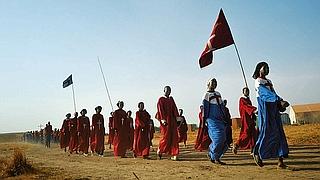

In the end, the National Dialogue - despite its flaws - surprised many observers with the reach of its consultations and the participants’ candid criticisms. Nevertheless, the international community and much of the South Sudanese public remain critical. There were also allegations that at least some delegate selection was subject to political interference.Įventually, changes to the dialogue’s structure, including the removal of the president as patron and restructuring of its membership, brought in more participants. Others said the process would only distract from the regionally led peace talks then underway in Ethiopia.Īs a result, the dialogue faced criticism for failing to include enough of the political opposition and leaving rural populations, often inaccessible by roads, excluded. Some argued it was impossible to hold a national dialogue under conditions that included a humanitarian crisis, mass displacement, expanding civil war and reprisals against people who criticized the authorities. Other armed opposition groups also declined to participate. Their boycott and the ongoing fighting made opposition-controlled areas difficult to reach. Riek Machar, were skeptical of the government’s commitment to dialogue and refused to participate. Armed opposition groups, including the main one led by current First Vice President Dr. A previous peace agreement had all but collapsed when violence broke out between government and opposition forces in Juba in July of 2016, spreading to previously stable parts of the country.įrom the start, the National Dialogue was a rocky process. President Salva Kiir convened the South Sudan National Dialogue in December of 2016, stating that its goal was to “end all violent conflicts in South Sudan, constitute national consensus, and save the country from disintegration and foreign interference.” South Sudan was facing a crisis at the time. South Sudanese cheer and wave flags as they celebrate their nation's independence in Juba, South Sudan, July 9, 2011. To move forward, they should listen to what South Sudan’s people said in the recently concluded National Dialogue and incorporate its recommendations in diplomatic, humanitarian and development strategies for the country. policymakers to embark upon a renewed push for peace. policy toward the country is insufficient to address the continued violence or promote sustainable peace. The United States played a key role in the emergence of South Sudan as an independent state 10 years ago.


 0 kommentar(er)
0 kommentar(er)
